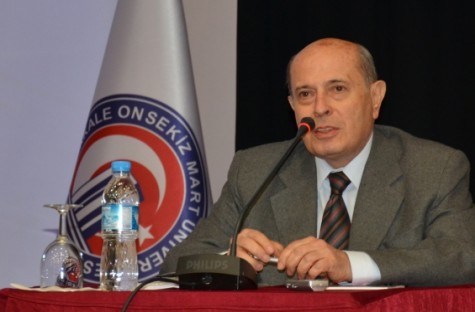
Ömer Engin LÜTEM
26 June 2014
In yesterday’s commentary, we touched upon the fact that various demands from Turkey by the Armenians are being brought to the agenda again for the centennial of 1915. Some people as well as some institutions from the Diaspora have started to publish their writings that lay out their opinions in the issue. Among them, the opinions of the Armenian Revolutionary Federation that is of Dashnak origin is prominent, yet political opinions and leanings generally originate from this party; in other words, majority of the Diaspora Armenians follow this party or are under its influence.
Armenian Revolutionary Federation Western U.S.A made a statement on 23 June 2014 titled as “Statement of Demands for Justice for the Armenian Genocide”. We are presenting a summary of the list of demands that we consider to be the most important.
- The Republic of Turkey must unequivocally acknowledge and bear the consequences of the so-called Armenian genocide.
- International borders should be redrawn on the basis of President Wilson’s decision issued on November 22, 1920. The Republic of Armenia should reunify with the provinces of Van, Bitlis, Erzurum, Trabzon, Kars and Ardahan, as well as Mount of Ağrı and its surrounding territories.
- Territorial property rights of the Armenian Nation should be restored. This should include Nakhichevan with recognition of the independence and international sovereignty of the Republic of Nagorno Karabakh and its current borders.
- The Republic of Turkey must make financial restitution to the descendants of the victims of the so-called Armenian Genocide or their designated community or organizational representatives and provide economic assistance to the Republic of Armenia.
- The Republic of Turkey shall provide unrestricted access to its judicial system and courts for any descendants of the victims of the so- called Armenian Genocide, to assert real and personal property rights with a complete waiver of any statutes of limitation.
- The Republic of Turkey shall adopt as a part of its national educational system an acknowledgement of the so-called Armenian Genocide and allow hidden and/or Islamized Armenians to return to their true identities if they so wish.
- The Republic of Turkey shall designate April 24 of each year as a Day of Remembrance of the Victims of the so-called Armenian Genocide and shall permit commemorative events in this regard.
There are matters in the statement that are requested from Turkey and Azerbaijan together as well. According to this, Turkey and Azerbaijan shall protect and preserve the hundreds of ancient churches, monasteries, cemeteries and other historical and cultural structures, and restore them to the Armenian Patriarchate of Istanbul and the Great House of Cilicia. Moreover, they shall remove all blockades to Karabakh.
The statement, in conclusion, states that, with the implementation of these demands, the Armenian Nation can move toward a lasting reconciliation and peaceful coexistence with the Turkish, Azeri and Kurdish populations of the region.
Our initial observation with regard to this statement is that the time has stopped in the year 1920 for the Dashnaks and Diaspora Armenians in general. Yet, the conditions present in 1920, when the Treaty of Sèvres was signed, disappeared completely in three years and Turkish-Armenian relations reached a new legal and political layout. In this regard, Turkey’s eastern borders were determined by Treaties of Moscow and Kars of 1921, which are still in force. Treaty of Lausanne, meanwhile, ruled that there would not be any war reparations.
In addition, a new legislation was adopted regarding unclaimed properties belonging to non-Muslims, including Armenians. According to this, there is no legal basis for Armenians to demand land or compensation from Turkey. As for properties, it is required to abide by the aforementioned legislation.
Since it is not possible for Armenian claims to be realized in legal ways, is there another way for them to be realized?
Armenia using force against Turkey to have its demands carried through is out of the question. Furthermore, no state is interested in or capable of providing help to Armenia on this issue. What is left is for Armenia is to put political pressure on Turkey, but its capabilities are inadequate in this respect. In spite of this however, the parliaments (but not the governments), media, and non-governmental organizations of some countries provide help to the Armenians. This help provided to Armenia; however, has not made any notable changes in Turkey’s stance on this issue. Starting from next year; the pressure on Turkey to recognize the so-called genocide, to open the borders, and to establish normal relations with Armenia will increase. However, due to this already strong status and very important strategic position, Turkey will be able to easily withstand such pressures.
As can be seen, it is not possible for the Armenian demands elaborated above to be realized, but it is possible to daydream and to believe in fairy tales on this issue, and to distract the Diaspora’s and Armenia’s public with such things.
© 2009-2025 Center for Eurasian Studies (AVİM) All Rights Reserved
No comments yet.
-
PRESIDENT SARKISIAN AND TURKEY
Ömer Engin LÜTEM 21.01.2012 -
ARMENIA 2013 (2)
Ömer Engin LÜTEM 07.01.2012 -
THE ADOPTION OF THE FRENCH RESOLUTION AND ITS AFTERMATH
Ömer Engin LÜTEM 26.01.2012 -
EXPECTATION FOR A DISASTER
Ömer Engin LÜTEM 14.08.2012 -
FUTURE OF THE TURKEY-ARMENIA PROTOCOLS
Ömer Engin LÜTEM 24.01.2010
-
THE MINSK GROUP’S REGIONAL VISIT IS IN PROGRESS
Alev KILIÇ 26.11.2012 -
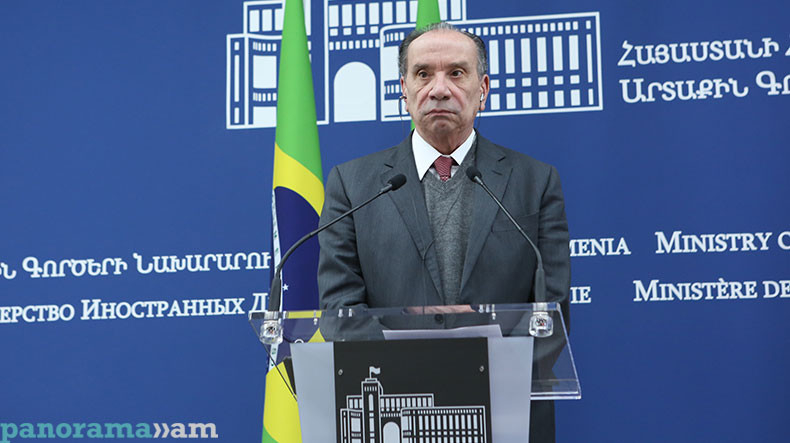 THE BRAZILIAN MINISTER OF FOREIGN AFFAIRS HAS DISAPPOINTED ARMENIA
THE BRAZILIAN MINISTER OF FOREIGN AFFAIRS HAS DISAPPOINTED ARMENIA
AVİM 22.11.2017 -
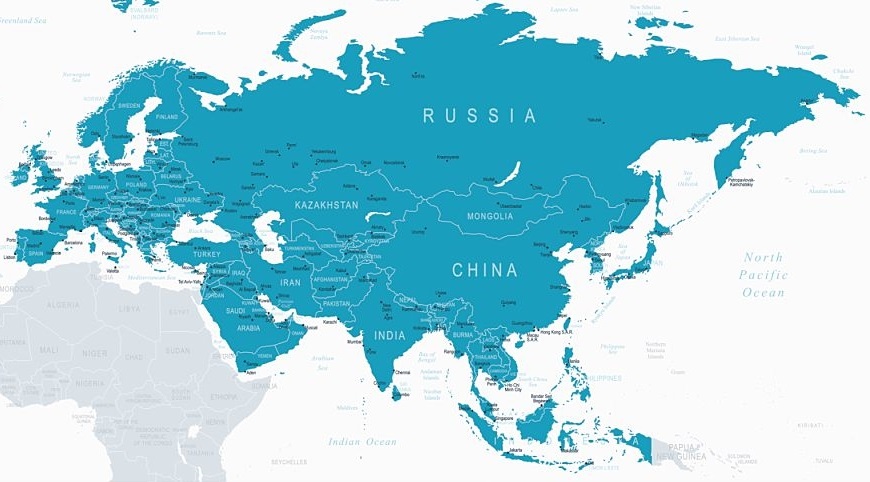 TURKEY’S INTERESTS AND CONSTRUCTIVE EURASIANISM
TURKEY’S INTERESTS AND CONSTRUCTIVE EURASIANISM
Mehmet Oğuzhan TULUN-Teoman Ertuğrul TULUN 05.05.2022 -
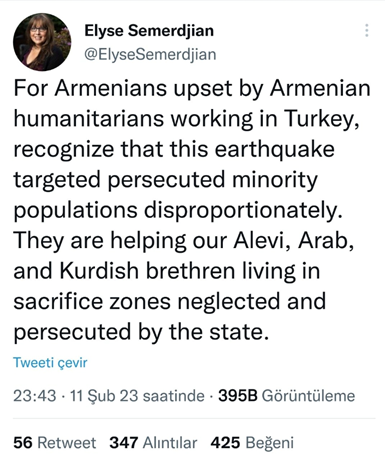 RACISM AND BIGOTRY IN ACADEMIA: THE ELYSE SEMERDJIAN CASE
RACISM AND BIGOTRY IN ACADEMIA: THE ELYSE SEMERDJIAN CASE
AVİM 21.02.2023 -
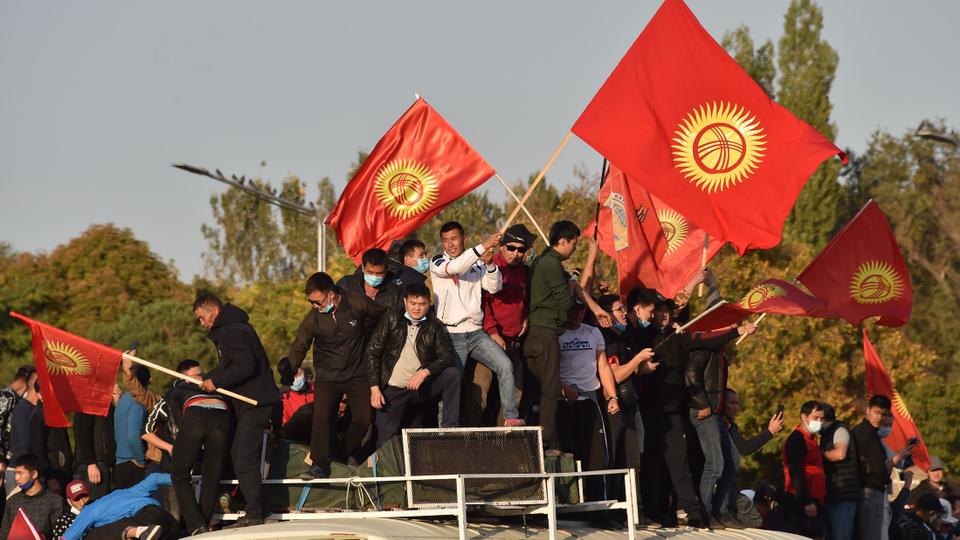 TURBULENT TIMES IN KYRGYZSTAN
TURBULENT TIMES IN KYRGYZSTAN
Turgut Kerem TUNCEL 14.12.2020
-
25.01.2016
THE ARMENIAN QUESTION - BASIC KNOWLEDGE AND DOCUMENTATION -
12.06.2024
THE TRUTH WILL OUT -
27.03.2023
RADİKAL ERMENİ UNSURLARCA GERÇEKLEŞTİRİLEN MEZALİMLER VE VANDALİZM -
17.03.2023
PATRIOTISM PERVERTED -
23.02.2023
MEN ARE LIKE THAT -
03.02.2023
BAKÜ-TİFLİS-CEYHAN BORU HATTININ YAŞANAN TARİHİ -
16.12.2022
INTERNATIONAL SCHOLARS ON THE EVENTS OF 1915 -
07.12.2022
FAKE PHOTOS AND THE ARMENIAN PROPAGANDA -
07.12.2022
ERMENİ PROPAGANDASI VE SAHTE RESİMLER -
01.01.2022
A Letter From Japan - Strategically Mum: The Silence of the Armenians -
01.01.2022
Japonya'dan Bir Mektup - Stratejik Suskunluk: Ermenilerin Sessizliği -
03.06.2020
Anastas Mikoyan: Confessions of an Armenian Bolshevik -
08.04.2020
Sovyet Sonrası Ukrayna’da Devlet, Toplum ve Siyaset - Değişen Dinamikler, Dönüşen Kimlikler -
12.06.2018
Ermeni Sorunuyla İlgili İngiliz Belgeleri (1912-1923) - British Documents on Armenian Question (1912-1923) -
02.12.2016
Turkish-Russian Academics: A Historical Study on the Caucasus -
01.07.2016
Gürcistan'daki Müslüman Topluluklar: Azınlık Hakları, Kimlik, Siyaset -
10.03.2016
Armenian Diaspora: Diaspora, State and the Imagination of the Republic of Armenia -
24.01.2016
ERMENİ SORUNU - TEMEL BİLGİ VE BELGELER (2. BASKI)
-
AVİM Conference Hall 24.01.2023
CONFERENCE TITLED “HUNGARY’S PERSPECTIVES ON THE TURKIC WORLD"









